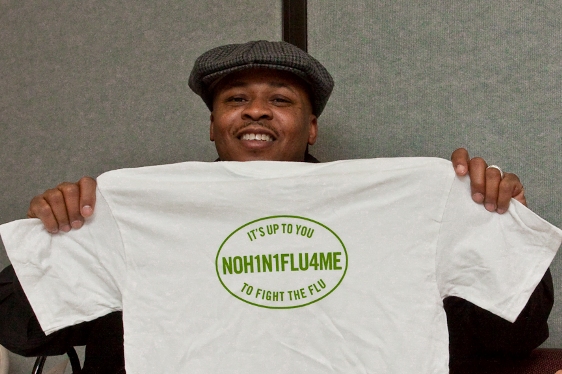In collaboration with the ACPHD, ACMRC members focus on emergency preparedness and response by assisting with public health emergencies (e.g., disease outbreaks, bioterrorism, power outages, hurricanes), public health outreach through a variety of projects and events that promote healthy living (e.g., flu etiquette, immunizations, HIV/AIDS education, food safety), and ongoing staff support (e.g., administrative assistance, medical record review).

No H1N1 Flu 4 Me! (We experienced a pandemic flu in 2009) Please cover your cough and wash your hands during any flu season!